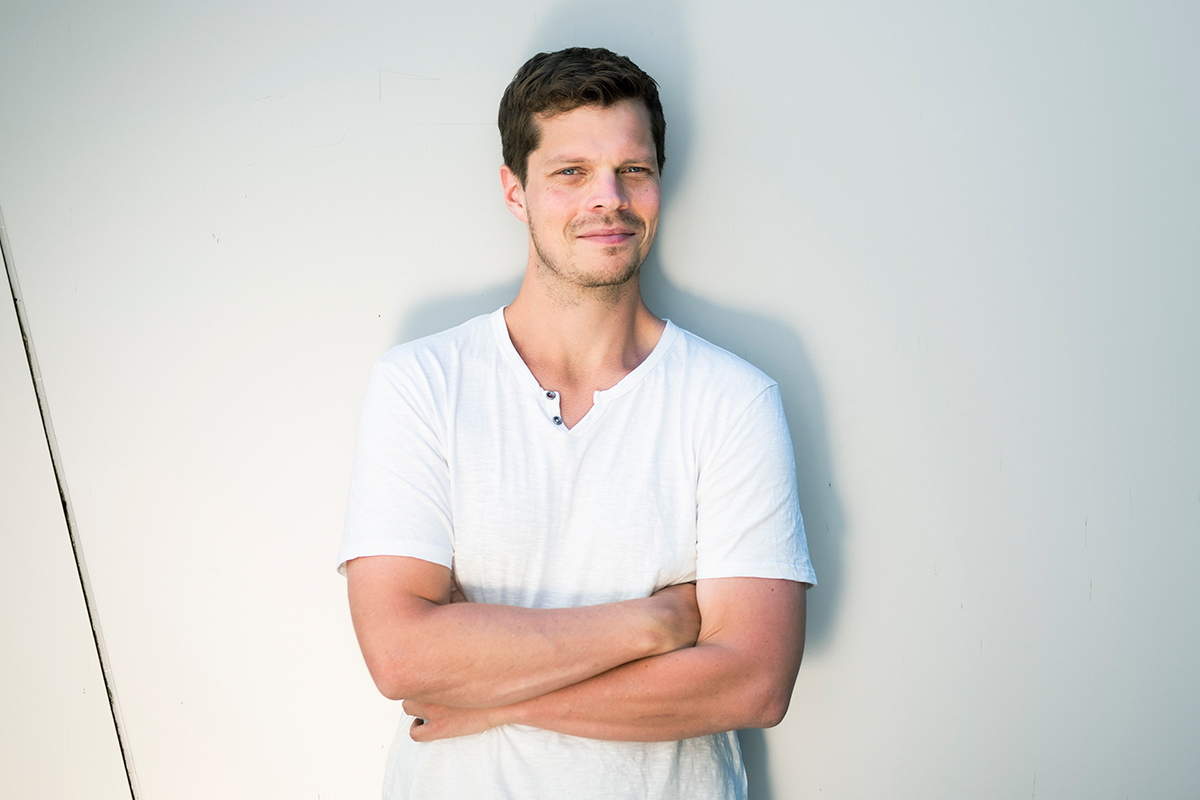Wie viele Nano- und Mikropartikel finden sich in unseren Flüssen? Wie sind sie dorthin gelangt? Woraus bestehen sie und was bedeutet das für Menschen, Tiere und den Rest der Natur? Das sind nur einige der Fragen, die David Clases mit seiner Forschung beantworten will. Seit Dezember 2021 ist er Assistenzprofessor am Institut für Chemie der Universität Graz und baut hier eine neue Arbeitsgruppe im Bereich der Nano- und Mikroanalytik auf. Neben dem Fokus auf die Umwelt ist der Einsatz von Nanostrukturen in der Biomedizin, etwa zur frühzeitigen Diagnose von Krebs, sein zweites Schwerpunktthema.
Sie sind nur schwer zu entdecken. Ein Nanopartikel ist gerade einmal ein paar Millionstel Millimeter groß. Grundsätzlich lassen sie sich überall finden. Einige stammen aus der Natur, andere wiederum sind „menschengemacht“, zum Beispiel aus industrieller Produktion. Auch ihre Anzahl variiert. „In der Nähe von Städten finden wir in der Regel mehr als in abgeschiedenen Regionen“, erzählt Clases. Offenbar scheinen sehr verschiedene menschliche Aktivitäten dabei eine Rolle zu spielen. „In einer unserer kürzlich publizierten Studien zu Nanomaterialien in einer Metropole haben wir unterhalb einer Stelle, an der aufbereitetes Klärwasser eingeleitet wird, über eine Milliarde Nanopartikel pro Liter gefunden“, berichtet der Chemiker, der vorhat, in Kürze auch die Mur genauer unter die Lupe zu nehmen.
Nach der Menge ist auch die Zusammensetzung der Teilchen relevant. Diese lässt zugleich ihre Herkunft erahnen: „Hat man sehr reine Partikel, ist das häufig ein Indiz dafür, dass sie aus anthropogenen Quellen stammen, also vom Menschen verursacht sind. Natürliche Partikel sind oft viel uneinheitlicher“, erklärt der Wissenschafter.
Noch ist kaum erforscht, was Nanostrukturen bewirken, wenn sie in einen Organismus gelangen. Auch dazu will Clases mit seiner Arbeit neue Erkenntnisse liefern und plant unter anderem, die Aufnahme in Pflanzen und kleinen Lebewesen zu erforschen.
Nanopartikel für die Krebsdiagnostik
Neben der Umweltanalytik erforscht der Chemiker die Eigenschaften der winzigen Strukturen mit Blick auf ihren Einsatz in der Medizin. „So lässt sich etwa ein Gold-Nanopartikel funktionalisieren, indem ihm bestimmte Moleküle angeheftet werden. Diese können dann in Blutproben gezielt Proteine aufspüren, die zum Beispiel bei der Entstehung von Krebs eine Rolle spielen“, erklärt Clases. Die Methoden, die er mit seiner Gruppe entwickelt, setzen auf die Element-Massenspektrometrie, mit der sich einzelne Partikel und schließlich einzelne Moleküle finden, zählen und genauer beschreiben lassen.
An der Universität Graz schätzt der gebürtige Deutsche, der zuvor vier Jahre an der University of Technology Sydney (UTS) in Australien tätig war, die Forschungsstärke und Kompetenz in der Analytischen Chemie: „Das Institut ist unglaublich gut ausgerüstet. Das gibt mir einen fliegenden Start und hilft mir dabei, mich zielgerichtet einzubringen.“
Auszeichnung
Für seine innovative, eigenständige Forschung erhielt David Clases Ende Juni 2022 von der Gesellschaft Deutscher Chemiker den „Fachgruppenpreis Analytische Chemie“.
